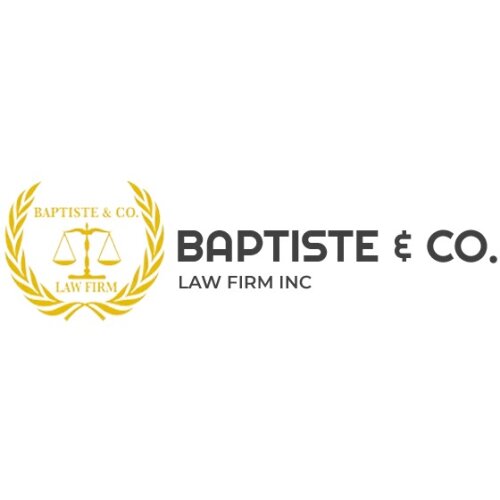Best Class Action Lawyers in Kingstown
Share your needs with us, get contacted by law firms.
Free. Takes 2 min.
List of the best lawyers in Kingstown, Saint Vincent and the Grenadines
About Class Action Law in Kingstown, Saint Vincent and the Grenadines
Class action law, while still developing in Kingstown, Saint Vincent and the Grenadines, provides a legal mechanism for a group of individuals with common claims to sue a defendant as a collective entity. This approach is particularly beneficial when individual claims are too small to make litigation viable. Class actions aim to ensure judicial efficiency, consistency of judgments, and the ability to pool resources for litigation.
Why You May Need a Lawyer
Engaging a lawyer in class action cases can be crucial for several reasons. If you believe you've been wronged by a corporation or institution alongside other individuals, a class action can be an effective tool for justice. Common situations include consumer product malfunctions, employee rights violations, environmental harm, or data breaches. A lawyer can help navigate the complexities of these cases and provide representation for collective interests.
Local Laws Overview
The legal framework in Kingstown, Saint Vincent and the Grenadines does not specifically have established class action legislation, making it unique compared to jurisdictions like the United States or Canada. However, collective litigation principles can apply in certain circumstances. The local legal system requires significant expertise to navigate these waters effectively, relying heavily on precedents and legal principles derived from English law. Engaging with legal professionals knowledgeable about both local and comparative international practices is vital.
Frequently Asked Questions
What is a class action lawsuit?
A class action lawsuit is a legal proceeding in which one or more plaintiffs file a case on behalf of a larger group who are affected by similar circumstances.
Can anyone initiate a class action in Kingstown?
Currently, the ability to initiate class actions is limited and requires coordination with legal experts who can determine the viability under existing local laws.
What types of cases can be class actions?
Common types relate to product liability, consumer fraud, environmental disasters, and worker rights violations.
How does one become part of a class action?
Usually, affected individuals are notified through public announcements or direct communication if they are identified as potential class members.
What are the advantages of participating in a class action?
Advantages include cost-sharing among plaintiffs, consistent outcomes, and increased legal leverage against large defendants.
Are there any costs associated with joining a class action?
Typically, legal fees are contingent on winning the case, meaning no out-of-pocket costs for class members upfront.
What happens if a class action succeeds?
If successful, the court awards a settlement or judgment, which is distributed among class members, after legal fees and expenses.
What if a class action fails?
If a class action fails, class members generally do not receive compensation, and individual claims may not proceed unless specifically pursued separately.
How long do class action lawsuits usually take?
Class actions can take several years due to their complexity and the volume of plaintiffs involved.
Where can I find more information on current class actions?
Information can be found by contacting local law firms or legal aid organizations that track such cases.
Additional Resources
For further assistance, consider reaching out to the Legal Department of the Ministry of Legal Affairs in Saint Vincent and the Grenadines, local law firms with expertise in civil litigation, or legal aid organizations. They can provide guidance and support for individuals considering or engaged in class actions.
Next Steps
If you believe you may be part of a potential class action, gather all related documentation and reach out to a legal professional specializing in this area. Schedule a consultation to discuss your case details and determine the feasibility of proceeding with legal action. Stay informed and involved throughout the legal process to ensure the protection of your rights and interests.
Lawzana helps you find the best lawyers and law firms in Kingstown through a curated and pre-screened list of qualified legal professionals. Our platform offers rankings and detailed profiles of attorneys and law firms, allowing you to compare based on practice areas, including Class Action, experience, and client feedback.
Each profile includes a description of the firm's areas of practice, client reviews, team members and partners, year of establishment, spoken languages, office locations, contact information, social media presence, and any published articles or resources. Most firms on our platform speak English and are experienced in both local and international legal matters.
Get a quote from top-rated law firms in Kingstown, Saint Vincent and the Grenadines — quickly, securely, and without unnecessary hassle.
Disclaimer:
The information provided on this page is for general informational purposes only and does not constitute legal advice. While we strive to ensure the accuracy and relevance of the content, legal information may change over time, and interpretations of the law can vary. You should always consult with a qualified legal professional for advice specific to your situation.
We disclaim all liability for actions taken or not taken based on the content of this page. If you believe any information is incorrect or outdated, please contact us, and we will review and update it where appropriate.








